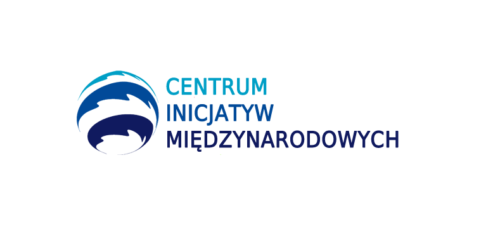ARTUR MALANTOWICZ, Asian Programme

According to a recent opinion poll conducted among Jordanians in June 2013 by Center for Strategic Studies (University of Jordan), vast majority of the population believes that war in Syria jeopardizes security and stability of the Hashemite Kingdom of Jordan (66% – “severely”, 22% – “moderately”). Even a very brief analysis of the situation clearly indicates that such a claim is justified. The war in Syria constitutes a major threat for Jordanian security and integrity, probably the most challenging since Black September in 1970 and the most complex one with its military, political, social, economic and ecological consequences.
Public discontent on rise
That same opinion poll shows that over half (52%) of Jordanians perceive government’s position towards Syrian crisis as neutral, nevertheless 27% of respondents recognize that Jordanian authorities lean towards the Syrian opposition. Furthermore, support for Syrian rebels is gradually decreasing among Jordanians themselves (46% in June 2013 compared to 58% in October 2012) whereas the group feeling indifference towards any of the conflicted sides is growing (39% in June 2013). It does not change the fact that absolute majority of the nation would prefer the Syrian problem to be resolved in a political manner (70%) rather than through foreign military intervention (23%).

Extremely worrying, especially when sided with the humanitarian crisis still unfolding in Syria, is the shifting attitude of the Jordanian society towards Syrian refugees. 73% of the Jordanians are nowadays opposing the open borders policy and further influx of refugee population into Jordan, and such position is on rise. Simultaneously, 87% of respondents believe that refugees should reside only within borders of the established refugee camps as otherwise – according to 90% of the Jordanians – it may threaten public security to a large or medium extent. Full report from the poll is available here (in Arabic).
Since the very beginning of the civil war in Syria Jordanian authorities remain cautious in framing its response to challenges coming from its northern neighbourhood. Above all, Jordan is afraid of a spillover of the conflict, possible retaliatory actions on behalf of the Assad’s regime and further destabilisation of the region which directly hits its relatively weak economy. It constantly calls for a political solution of the crisis, maintains good relations with both Friends of Syria and supporters of Assad (Iran, Russia) and tries to manoeuvre between Syrian government and opposition. Nonetheless, Jordan overtly criticizes Syrian authorities for the bloody reaction to initially peaceful demonstrations, and was in fact the first Arab state to call Bashar al-Assad to step down (in November 2011).
Comprehensive security in danger?
Complexity of threats to Jordanian security inflicted by the Syrian crisis is shown in the table below:
| Military dimension | Political dimension |
|
|
| Economic dimension | Social dimension |
|
|
| Ecological dimension | |
|
|
Any solutions?
 War in Syria is probably one of the biggest, if not the biggest, challenges Jordan has to face in more than 40 years. Intensification of the military activity on ground, deteriorating humanitarian situation of the civilians and their massive influx into Jordan, a direct military threat and several dangers related to uncertain future of Syria and overload of Jordanian socio-economic system – it all causes a major concern for the Hashemite Kingdom of Jordan. It is also why a quick end to the civil war in Syria falls into category of Jordanian ‘to be or not be’. Meanwhile Jordan is forced to continue its balanced and cautious policy, maintain good working relations with everybody and look for security guarantees in the West, which were recently delivered in a form of international military manoeuvres Eager Lion 2013 (with Polish participation) as well as American F-16 squadron and Patriot batteries deployed along Jordanian border with Syria.
War in Syria is probably one of the biggest, if not the biggest, challenges Jordan has to face in more than 40 years. Intensification of the military activity on ground, deteriorating humanitarian situation of the civilians and their massive influx into Jordan, a direct military threat and several dangers related to uncertain future of Syria and overload of Jordanian socio-economic system – it all causes a major concern for the Hashemite Kingdom of Jordan. It is also why a quick end to the civil war in Syria falls into category of Jordanian ‘to be or not be’. Meanwhile Jordan is forced to continue its balanced and cautious policy, maintain good working relations with everybody and look for security guarantees in the West, which were recently delivered in a form of international military manoeuvres Eager Lion 2013 (with Polish participation) as well as American F-16 squadron and Patriot batteries deployed along Jordanian border with Syria.
Artur Malantowicz – CII Middle East Expert & Director of CII Asian Programme – works at the University of Warsaw (UW) where he is also a PhD student at the Faculty of Journalism and Political Science. Graduated from the Institute of International Relations UW (2011) and the Faculty of Geography and Regional Studies UW (2011) and in addition studied at the University of Kent in Canterbury (United Kingdom, 2008-09) and the University of Jordan (Jordan, 2012-13). Trainee at the Ministry of Foreign Affairs of the Republic of Poland (2011) and the EU Delegation in Amman (2013). Research interests: International relations of the Middle East, regional security aspects in the Middle East (e.g. Arab-Israeli conflict, peace process, the Palestinian refugees), foreign policy of the Arab states, the Hashemite Kingdom of Jordan (history, political system, foreign policy and the democratization process), superpowers’ policy towards the Middle East.
Read also:
- A. Malantowicz, Jordanian Parliamentary Elections – a Breakthrough or Just a Routine?
- A. Malantowicz, Kryzys humanitarny w Syrii
- A. Malantowicz, Jordan – the Refugees’ Safe Haven
- W. Wolanian, Syria – kiedy nadejdzie koniec krwawej arabskiej wiosny?

